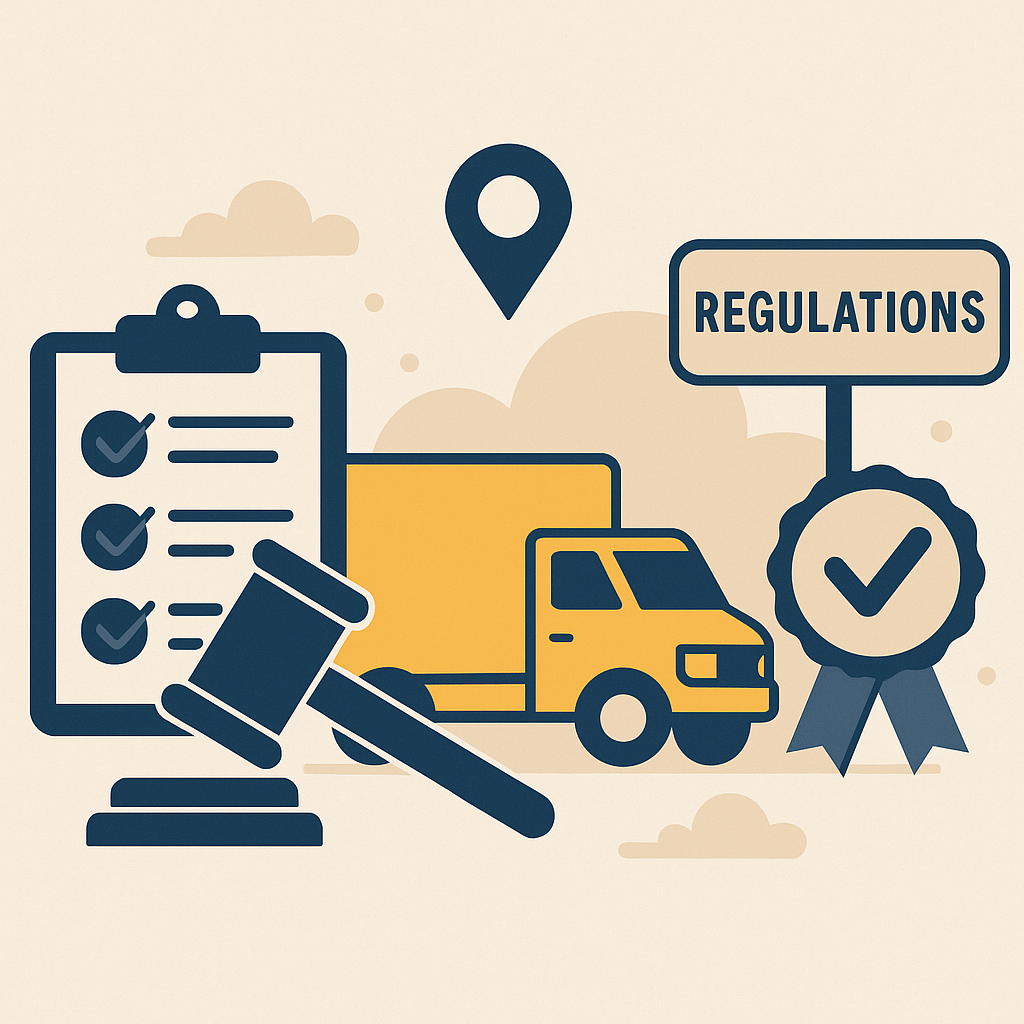Regulatory Compliance in Fleet Management
Introduction

In today's interconnected world, businesses managing fleets must adhere to a variety of regulatory standards to ensure safety, environmental responsibility, and operational transparency. From digital driver logs to emissions control and data protection, regulatory compliance plays a vital role in modern fleet operations.
Key Areas of Regulatory Compliance
1. Electronic Logging Systems (ELDs)
Electronic Logging Devices (ELDs) help automate the recording of drivers' working hours, ensuring accuracy and adherence to labor laws. These systems reduce paperwork, prevent fatigue-related incidents, and help businesses maintain transparent driver records.
2. Emissions and Environmental Standards
Fleet managers must comply with local and international emissions regulations to minimize their environmental impact. This includes regular vehicle inspections, use of cleaner fuels, and adoption of low-emission or electric vehicles to meet sustainability targets.
3. Vehicle and Driver Safety Requirements
Compliance with safety standards ensures that all vehicles are roadworthy and that drivers are trained and certified. This includes regular maintenance, inspections, and adherence to speed and load limits, helping reduce accidents and liabilities.
4. Data Protection and Privacy Regulations
Modern fleet systems collect a vast amount of data. Businesses must comply with data privacy laws by securing telematics information, respecting driver privacy, and ensuring secure data storage and access practices.
5. Regional and Industry-Specific Guidelines
While global standards provide a baseline, regions and industries often have additional requirements. Fleet operators need to stay updated with local transport laws, industry-specific certifications, and periodic audit processes.
Conclusion
Compliance in fleet management isn’t just about avoiding penalties—it’s about operating responsibly, building trust, and staying competitive. By aligning with global and regional regulations, businesses can ensure safer fleets, better environmental practices, and more efficient operations.
